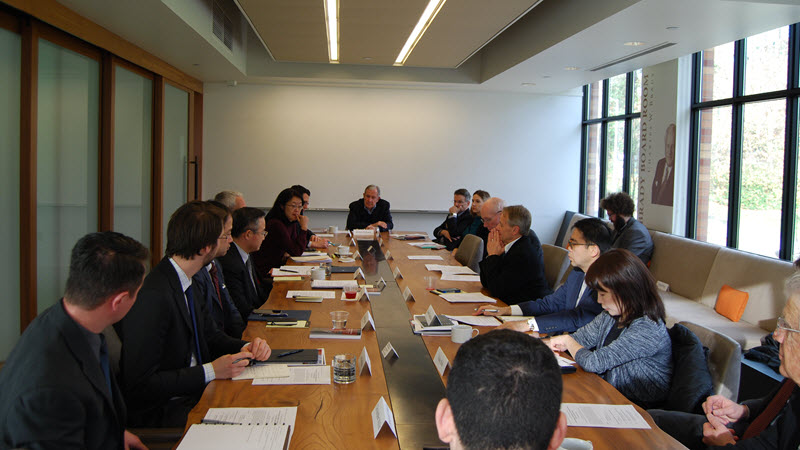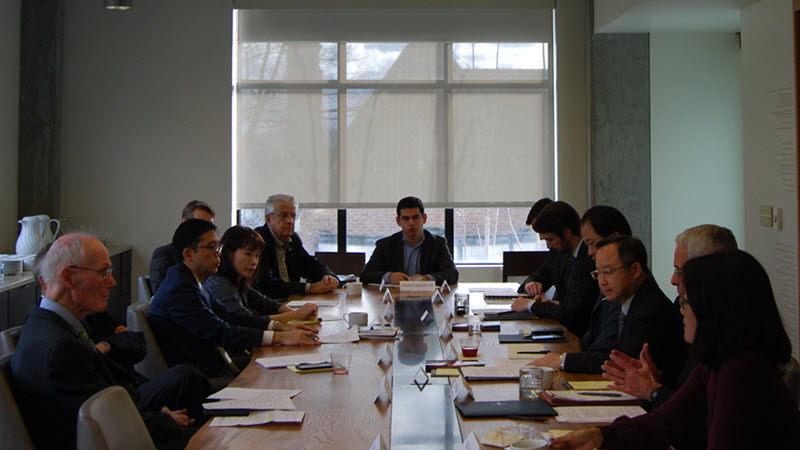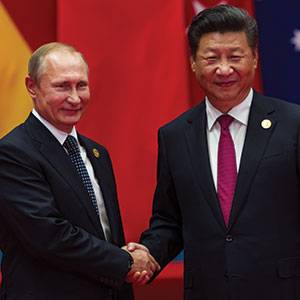Contact
Axis of Authoritarians
Implications of China-Russia Cooperation for the United States and Japan
On November 30, 2018, NBR convened a select group of academic, government, and business leaders to discuss key themes from both the book Axis of Authoritarians: Implications of China-Russia Cooperation and a forthcoming special report on regional perspectives of China-Russia cooperation. This roundtable discussion addressed China-Russia cooperation across the domains of international politics, international security, and international trade from the perspectives of the United States and Japan. It also assessed strategic implications of these dynamics for Northeast Asia and explored policy options for Japan and the U.S.-Japan alliance.
Agenda
INTRODUCTION
Welcome Remarks
Richard J. Ellings, President, NBR
Yoichiro Yamada, Consul-General of Japan in Seattle
CHINA-RUSSIA COOPERATION: IMPLICATIONS FOR U.S. AND JAPANESE POLICYMAKERS
Moderator
Richard J. Ellings, NBR
The China-Russia Entente: Implications and U.S. Policy Options
Robert Sutter, George Washington University
A Japanese Perspective on Growing China-Russia Cooperation
Yuki Tatsumi, Stimson Center
China-Russia Relations in the East Asia Maritime Domain
Tetsuo Kotani, Japan Institute of International Affairs
CONCLUDING REMARKS
Robert Sutter, George Washington University
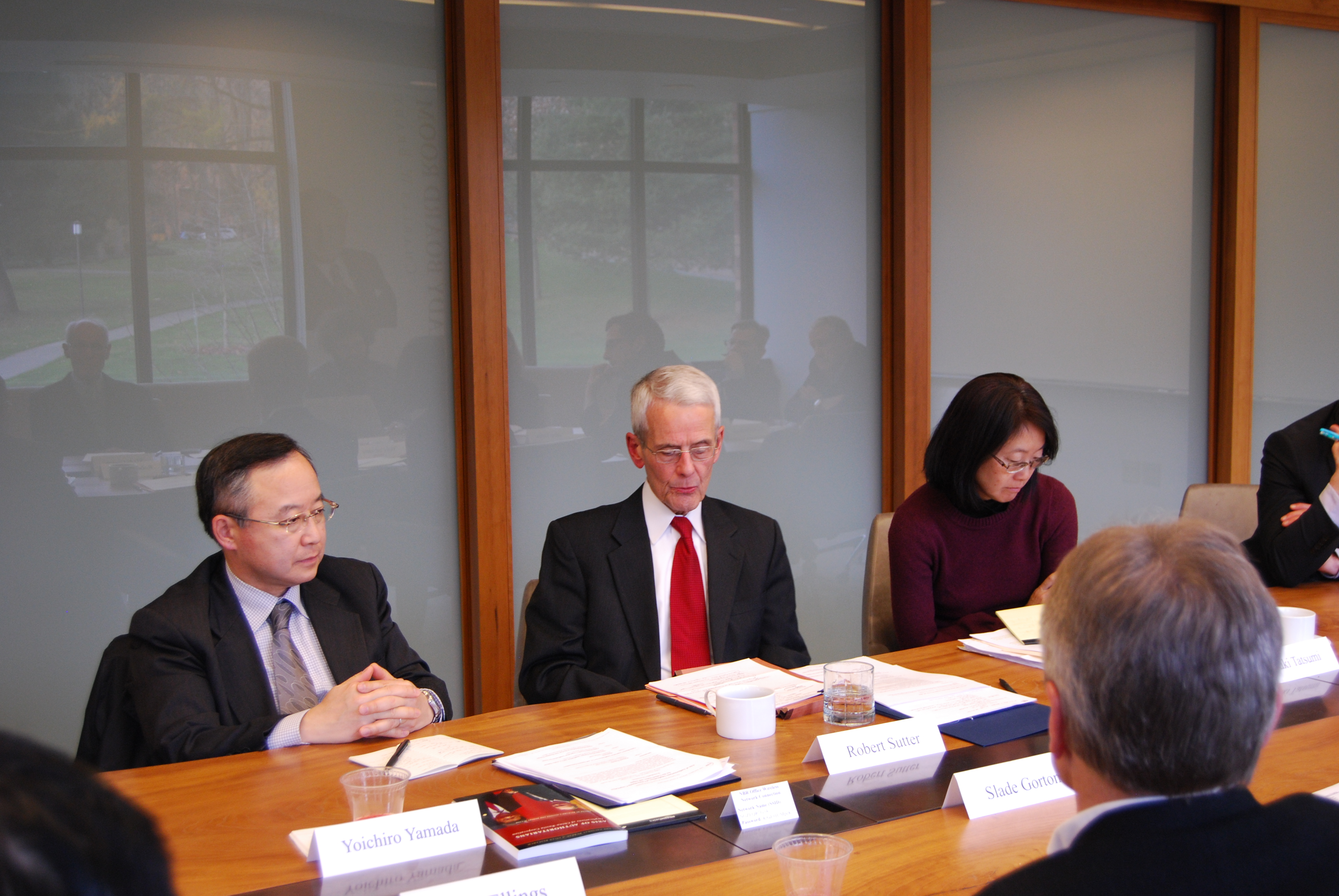
Left to right: Yoichiro Yamada (Consul-General of Japan in Seattle), Robert Sutter (George Washington University), and Yuki Tatsumi (Stimson Center).
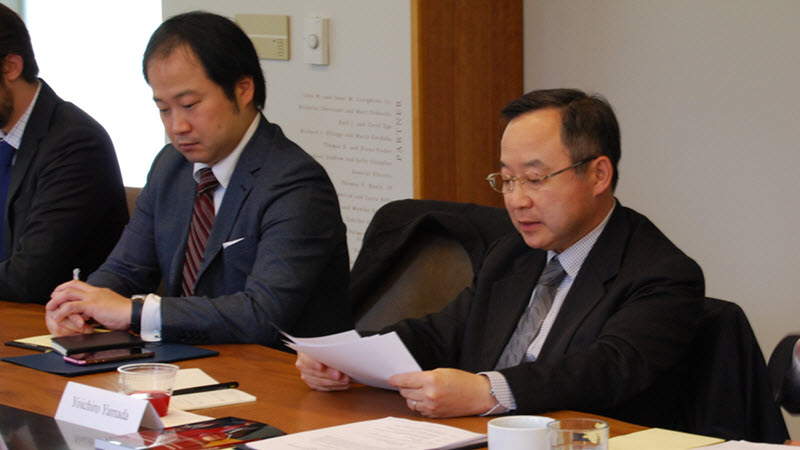
Left to right: Tetsuo Kotani (Japan Institute of International Affairs) and Yoichiro Yamada (Consul-General of Japan in Seattle).

Left to right: Robert Sutter (George Washington University) and Yuki Tatsumi (Stimson Center).
